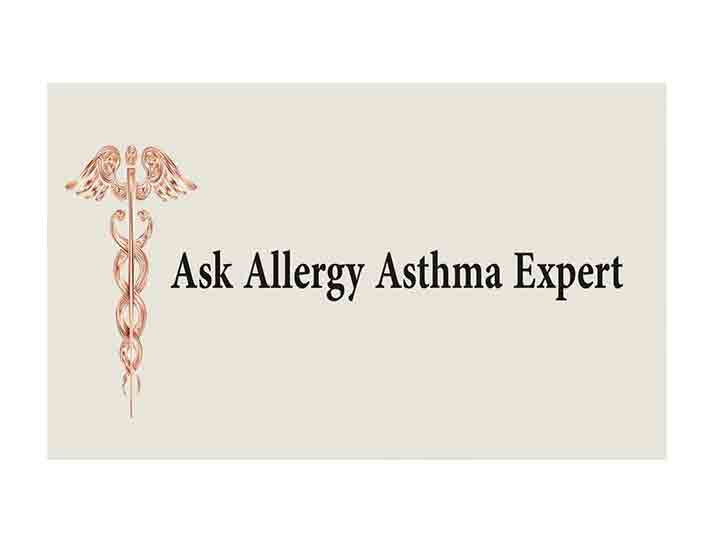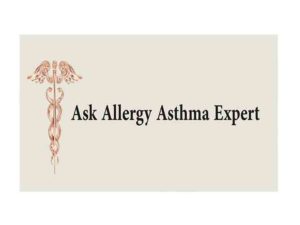Ask Allergy Expert/Allergy Specialist/ Allergist
Step 1: Verify the symptoms you are experiencing:
Common symptoms of allergy include:
- Sneezing
- Runny nose
- Itchy nose
- Stuffy nose
- Cough
- Watery eyes
- Itchy eyes
- Sore or scratchy throat
- Dark circles under the eyes
- Frequent headaches
- Extremely dry, itchy skin
- Hives
- Fatigue
Anaphylaxis is the most severe form of allergy.
Symptoms of Anaphylaxis:
- Generalized urticaria and angioedema
- Itching, tightness in the throat and
- Hoarseness of voice
- Skin itching, hives, redness
- Vomiting, diarrhea, cramps in the abdomen
- Respiratory difficulty,
- A cough, wheeze
Only a few symptoms may be present. The severity of symptoms can change quickly.
Step 2: Attend any medical facility / Allergist’s Chamber.
Bring all past medical records. Tell your physician about the symptoms.
Step 3: Do Allergy test.
Your physician may advise you to do certain test to find out the cause.
Most common Allergy test includes the following:
- Skin test/Skin Prick Test (SPT)
- Blood test to detect allergen-specific IgE
- Elimination diet
- Oral food challenge
Step 4: Follow medication as prescribed by your physician.
Your Allergist most probably prescribe any of the following medication
Medications include-
Antihistamines: the most common medicine used for allergy. These medicines are effective in mild to moderate allergic reactions.
Most common Antihistamines include but not limited to:
- Fexofenadine
- Cetirizine
- Levocetirizine
- Desloratadine
Decongestants:
The decongestant can be used to relieve a stuffy nose and sinus pressure. These medications can be used for a short period of time.
Decongestants include:
- Oxymetazoline
- Pseudoephedrine
- Phenylephrine
Eye drops:
These medicines can be used for a short period of time.
Corticosteroids:
- Steroid nasal sprays for a long term.
- Oral steroid for a short period of time.
Immunotherapy:
- Immunotherapy or allergy shots can change the natural history of allergic disease.
- It can cure allergy in a few patients.
- It requires long-term treatment.
For severe allergic reaction or in anaphylaxis:
Injection Adrenaline/ Epinephrine. This can be given by personal adrenaline autoinjector or in the hospital.
You can ask a question on Allergy by filling up the following form. This is for a further opinion from the expert. But please remember that a personal contact with any Allergist / Physician is the best for any patient. Any internet advice is not the substitution of any medical condition. It may take time to respond to each and every query.



